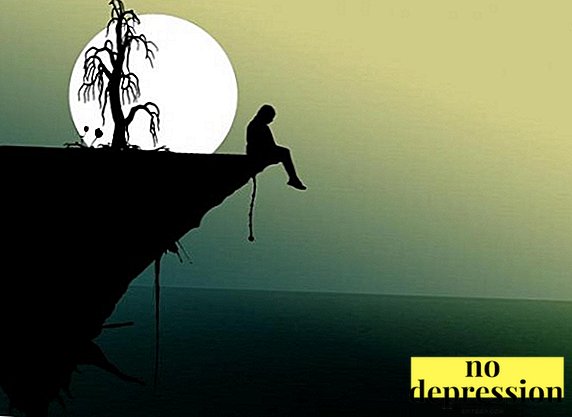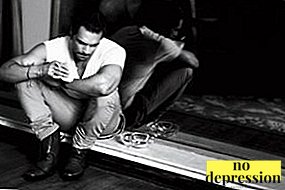Psychology has long ceased to be a sciencein which it is necessary to understand only those whose specialty is closely connected with it: psychologists, teachers, psychotherapists, psychiatrists.
Its various branches are studied in the framework of many educational programs of higher educational institutions, even in technical universities.
And the book market is flooded with psychology literature, intended for a wide range of readers. And people who are interested in this scientific direction, seek to find for themselves high-quality books on psychology that are worth reading.
Top 10 best, popular and useful

Among the vast array of significant, in fact, changed the world of books on psychology, isolating the ten most important is extremely difficult.
The works created by such experts as Sigmund Freud, Anna Freud, Aaron Temkin-Beck, Abraham Maslow, Erich Fromm, Max Wertheimer, Victor Frankl, have significant value for psychology as a science.
This value is unconditional, so any person who wants to seriously study psychology, it is important to start with the work of these scientists.
Also extremely important are the works of scientists who worked at the intersection of several sciences. This work and A. R. Luria, the creator of neuropsychology, and Benjamin Lee Whorf, Noam Chomsky, Dan Slobin, who worked in the field of psycholinguistics.
In this top of books on psychology will be famous works and really helpful.
But for those who decide to familiarize themselves with this rating, it is important to remember that there are hundreds of equally important books that promoted psychology to a new level.
Dale Carnegie - "How to stop worrying and start living"
Many people feel every day psychological pressure which society has on them. They feel the burden of expectations imposed by others, and are afraid to be not good enough for them.

Small and big causes for anxiety, anxiety are constantly encountered by a person on the way and make it difficult to feel calm, confidence and happiness.
Dale Carnegie finished working on a book as early as the mid-twentieth century, and in a short time it acquired world fame.
It describes how to reduce anxiety, stress, fatigue, provides simple tips that will allow most people to look at their lives differently and improve it.
Who needs to read it? People who feel that their lives are too much stress and anxiety, which make them ineffective and helpless, and those who want to become more balanced and happy.
Sigmund Freud - "The Interpretation of Dreams"
Psychoanalysis - the direction created by Sigmund Freud and radically influencing the development of a multitude of sciences related to psychology, which changed the approach to the treatment of mental illness.
"Interpretation of dreams" - one of Freud's most famous writingsFirst published in 1900, in which he comprehensively examines the essence of dreams, talks about their functions and how they relate to the unconscious.
Freud returned to his work several times in order to modify; for example, he added to symbols of processing symbols appearing in dreams and their interpretation.
Thanks to these additions, it has become easier for psychoanalysts to analyze client's dreams.
Who needs to read it? People who are interested in Freudian, psychoanalysis and want to learn more about dreams.
Erich Fromm - "To have or to be?"

Erich Fromm, a famous German psychologist, psychoanalyst and philosopher, wrote dozens of works throughout his life.
One of the key ideas that he uncovered in his work is related to the fact that the human psyche is important to consider holisticallyand not only from the side of Freudian concepts, based on sexual desires.
The work "To have or to be?" The world saw four years before the death of Erich Fromm.
Already an elderly Erich embodied and revealed in his work the idea that materialism has become the mainstay of today's societytherefore, “to have” for people has become more important than “to be.” In the book, he refers to the works and statements of many philosophers and scientists.
Who needs to read it? Those who are interested in the ideas of Freudo-Marxists and who want to have a different look at modern society.
Oliver Sachs - "The Man Who Took His Wife for a Hat"
The world-famous books of Oliver Sachs, a British neuropsychologist, contain predominantly mental illness stories his patients, and reading them helps to better understand people with mental diseases, as well as to accept their features.
Oliver received the title of commander of the Order of the British Empire in 2008.
The book "The man who took his wife for a hat" considered the most famous piece Oliver Sachs and repeatedly reprinted in the United States.
It contains the history of diseases and the author's reasoning about how the disease affects the human psyche, his abilities.
Who needs to read it? People who want to learn more about mental diseases and look at the work of doctors from the inside.
Victor Frankl - “Say“ Yes ”to Life: A Psychologist in a Concentration Camp

The life of Victor Frankl, an Austrian existentialist psychologist, did not always work out well: in 1942 he ended up in a concentration camp.
There he is secretly provided psychological assistance to prisonersespecially for the elderly, people with disabilities, people with psychopathy, and those who want to end their lives.
He also developed his own direction in existential psychotherapy - logotherapy.
The book is devoted to the period of stay of Victor Frankl in the concentration camp and is the most famous of those that he wrote.
Who needs to read it? Those who are interested in an existential view of the human psyche. It will also help people who are in crisis periods and are looking for reasons to live.
Edward de Bono - Six Hats of Thinking
Edward de Bono is a psychologist of British descent who dedicated his life to studying. creative thinking.
He has written over ten books about thinking and how to learn to think creatively, outside the box.
Each “hat” in the book is a format of thinking that the author suggests to wear to the reader in order to thinking has become more perfect and he could think differently depending on the circumstances.
Who needs to read it? People who strive for self-improvement and are in search of ways to develop thinking and intelligence.
Irwin Yalom - “Peering into the sun. Life without fear of death "

Fear of death in one way or another is inherent in each person and usually does not make life difficult, but sometimes it can become too strong.
Thanatophobia - a pathological fear of death - is one of the most common phobias in the world.
According to statistics, adolescents and people who are in a midlife crisis have the greatest fear of death.
Irwin Yalom, a renowned existential psychotherapist and psychiatrist, considers in his book thananathobia, criticizes the Freudian views on the fear of death that are common in psychotherapy and gives practical advice on how to combat it. This wise book will be useful for both psychotherapists and ordinary readers.
Who needs to read it? First of all - people who have tanatofobiyu.
Abraham Maslow - "New Frontiers of Human Nature"
Abraham Maslow, an American humanist psychologist, was best known for studying human nature and creating a pyramid of needs. His ideas and research had a significant impact on the development of psychology and are actively used in economics.
One of his key works, The New Frontiers of Human Nature, is difficult to call easy reading, but it can help an attentive and patient reader to get a lot of information about human nature, about motivation, about creativity and leave a lot of topics for discussion.
Who needs to read it? People who aspire to self-development and self-knowledge, leaders, practicing psychologists.
Susan Forward - Toxic Parents

Parents - first people in a child's life, and their attitude to him largely determines what his character, mentality, and views on life will be.
If the parents are benevolent, patient and strive to do everything for their child that they can, he will surely be happy and his mind will be healthy.
And if not?… What will happen to the psyche of the childif parents beat him, humiliate him, manipulate him, overprotect him?
This is the book devoted to Susan Forward, a popular psychologist and psychotherapist. In this work, she talks about how toxic parents are and how their influence cripples children, prevents them not only in childhood but also in adulthood.
Also in the book are practical recommendationsthat will help people who have experience with toxic parents to free themselves and improve their mental state.
Who needs to read it? People whose parents did not treat them in the best way, because of which their life became much worse. Also, the book will be useful to parents who do not want to become toxic.
David Burns - “Wellbeing. New Mood Therapy
Depression is considered the most common mental illness: about 10% of Americans suffer from various types of depression.
More than one hundred and fifty million people in the world are losing the opportunity to work because of it. About 50-60% of suicides are committed by people who have depression.
The work of David Burns, a psychologist and psychotherapist who promotes cognitive-behavioral psychotherapy ideas, is devoted to the mechanism for the development of depression and the way to combat its various symptoms.
It enables any person to independently improve their mental well-being.
Who needs to read it? This book is able to help not only depressive people, but also those who suffer from neurosis, often confronted with melancholy, has motivational difficulties.
It will also be interesting to read to those who seek to get acquainted with the ideas of cognitive-behavioral psychotherapy.
Psychology books for beginners
The most famous books for those who are just starting to study psychology include the following:
- “General psychology”, A. G. Maklakov. In this book, the central definitions of basic psychology are disclosed in an accessible form.
- "Psychology of personality" in two parts, V. A. Averin. Contains the main provisions of the psychology of personality and information about the achievements and theories of domestic experts in this industry.
- "Psychology" in three parts, R. S. Nemov. Designed to train teachers.
Subject literature

This section contains books related to gender, family, behavioral psychology and works for self-development.
Books on the psychology of gestures and facial expressions:
- “Psychology of lies”, Paul Ekman. This book will allow the reader to learn more about lies and how to recognize a liar.
- “I see what you think about,” Joe Navarro. Gives you the opportunity to learn more about non-verbal cues.
Interesting books on behavioral psychology:
- "Don't growl at the dog," Pryor Karen. Bestseller, which tells about how to influence people's behavior.
- “Image I and Behavior,” Vadim Rotenberg. The book is devoted to mechanisms to control their own behavior.
Books for self-development:
- "Willpower. How to develop and strengthen? ”, Kelly McGonigal. Practical tips for strengthening willpower.
- "7 skills of highly effective people", Stephen Covey. Influential book that is useful to people who want to achieve a lot in life.
- Emotional Flexibility, Susan David. The book will help people seeking to improve themselves and looking for ways to increase motivation.
Books to help you understand yourself:
- "The subconscious can do anything," John Kehoe. Describes the work of the human brain and how to use its resources.
- “The art of living is simple,” Dominic Loro. The author, having penetrated into the ideas of Taoism, expressed them in this book, which will make it possible to realize what exactly a person needs and to cross out the superfluous.
- “Five injuries that prevent you from being yourself”, Liz Burbo. The work is dedicated to injuries and responsibility to yourself for putting them on anyone.

Books on the psychology of communication:
- “How to win friends and influence people”, Dale Carnegie. In a simple and understandable form tells the story of how to achieve mutual understanding with others.
- “Grand master of communication”, Sergey Deriabo. Friendly product on the psychology of communication with pictures.
- “How to talk to anyone, anytime, anywhere”, Larry King. The book will provide an opportunity to cope with uncertainty in interpersonal interactions.
Books on gender psychology and relationships:
- "Men from Mars, Women from Venus", John Gray. This work describes how people of different sexes achieve mutual understanding, how to start a relationship with a member of the opposite sex.
- “Five Languages of Love: How to Express Love to Your Companion,” Gary Chapman. The author reminds the beloved that they should listen not only to their heart, but also to what their chosen one says.
Books on the psychology of family life:
- "Conflict in the family", Andrei Kurpatov. It helps to better understand the mechanisms of family conflict and solve problems.
- “To give an apple?”, Svetlana Ermakova and Leonid Zharov. Comprehensively examines the topics of relationships, helps to understand when to stop and leave.
Psychology books that turned life around:
- "Radical forgiveness", Colin Tipping. Helps to achieve inner harmony and cross out the past.
- “One habit per week,” Brett Blumenthal. Changes begin with trifles, and the author of this book proposes to introduce good habits that can gradually change life for the better.
Books on women's psychology for men:
- “Secrets about women every man should know,” Barbara de Angelis. After reading it, the man will be able to realize what the woman expects from him.
- “Translation from female to male and back,” Andrei Kurpatov. Will understand women and achieve balance in the pair.

Books on the psychology of men for women:
- “You know nothing about men,” Steve Harvey. The book will provide an opportunity to understand what a man needs in certain age periods and how to reach an understanding with him.
- "Is he. Deep Aspects of Male Psychology, Robert A. Johnson. The book discusses the stages of growing men and the significance of women in his life.
Psychology books for men:
- "On the limit. A week without self-pity, ”Eric Larssen. Bestseller, which tells how to become the best version of yourself.
- "The Psychology of Bad Habits," Richard O'Connor. Dedicated to the fight against bad habits.
Psychology books for women:
- “Flexible Consciousness,” Carol Duke. Helps to improve the opinion of others about themselves and achieve the best.
- “Magic of the Morning”, Hal Elrod. Dedicated to how you can change your life for the better, if you perform daily morning rituals.
Books for teenagers:
- “You can do more than you think,” Thomas Armstrong. Teenagers tend to doubt themselves, and this book will help them to open up and understand that each person is good in his own way.
- “Why me?”, Ayca Mayrok. This friendly book is devoted to the subject of school bullying. Its author is a girl who herself faced harassment.
Psychology books help you better understand yourself and the world, you just need to try to get acquainted with them.
A selection of books on psychology in this video:



